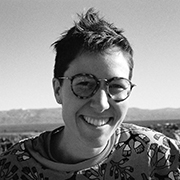A .gov website belongs to an official government organization in the United States.
A lock () or https:// means you've safely connected to the .gov website. Share sensitive information only on official, secure websites.

Forty percent of wildland firefighters are employed through the private sector via contracting companies. However, these public service professionals’ health and well-being experiences are underrepresented in both research and policy pertaining to wildland firefighting. This presentation shares mixed methods research incorporating both qualitative data and small-scale air quality monitoring conducted in partnership with contract wildland firefighters to better understand workers’ air quality, breathing and exposure experiences. Qualitative research activities with 53 participants found that contract firefighters perceived that they were more exposed to certain types of risk than state and federal firefighting teams, that contract firefighters posed questions about their future health status related to smoke exposure, and that contract firefighters with chronic conditions faced barriers to care. Preliminary air quality monitoring data showed that mop up and initial attack/direct attack (fireline work activities) returned the highest levels of PM2.5 and CO with higher variability than other activities conducted by firefighters. The results of the research may offer future directions for combining qualitative and quantitative approaches, partnering with directly affected community members to conduct research pertaining to health and well-being, using low-cost air quality sensors and conducting environmental justice research in occupational contexts.
Arielle Milkman is a PhD Candidate in the Department of Anthropology at the University of Colorado, Boulder. Her dissertation work addresses wildfire management in the Pacific Northwest, with a focus on how immigrant workers contribute to wildfire response. She is the co-PI on a three-year NOAA-NWS Collaborative Science, Technology and Applied Research (CSTAR) grant that focuses on wildland firefighters’ experiences with air quality and smoke.
ALL Seminar attendees agree not to cite, quote, copy, or distribute material presented without the explicit written consent of the seminar presenter. Any opinions expressed in this seminar are those of the speaker alone and do not necessarily reflect the opinions of NOAA or CSL.